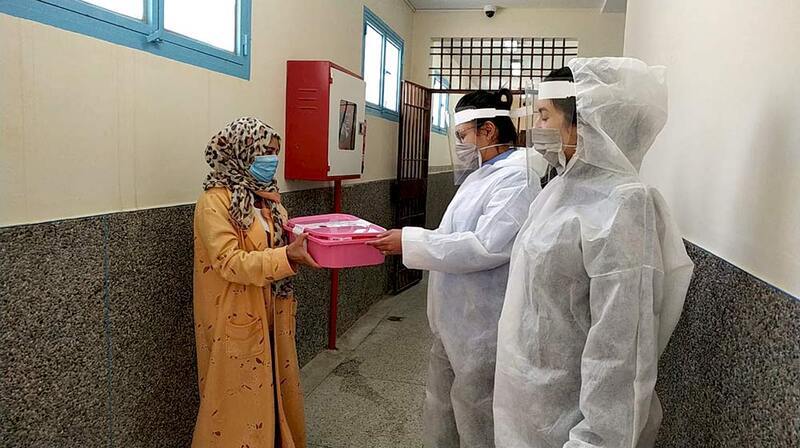
Report highlights 2 Egyptian projects among major clean energy ventures in N.Africa
A report by Energy Capital & Power highlighted two Egyptian projects – Suez Wind Power ...

Operation SALAMA of the United Nations Population Fund (UNFPA) managed to reach over 16 million people to help them confront the coronavirus pandemic (COVID-19).
The operation – spearheaded in late March – worked across multiple fronts, spreading accurate information about disease prevention, protecting health professionals and pregnant women from COVID-19, and minimizing the economic effects of the pandemic on the most vulnerable people.
UNFPA also worked with health officials to ensure maternal health services remained available, even as the health system grappled with tens of thousands of cases of COVID-19.
Maternal health facilities were adapted to reduce the risk of coronavirus exposure. Health workers also received “SALAMA kits” containing protective equipment and sanitation supplies.
More than 700 health-care professionals attended remote training sessions about disease prevention and management.
SALAMA kits with hygiene supplies and disease-prevention information were also distributed to vulnerable groups, including migrants, older people, persons with disabilities, survivors of violence, young people and people in detention.
Nearly 8,000 people were reached with these kits.
Over its three months of operation, field interventions were carried out in 275 health centers, maternity hospitals, social protection centers, prisons, child protection centers, women’s homes and service associations, covering more than 90 urban and rural localities.
The program brought together a wide range of partners, from the government and civil society organizations to youth groups, health worker associations and the private sector. It also received support from the Canadian and Belgian embassies in Morocco.
As a follow-up, UNFPA has launched the “SALAMA at Work” initiative, which continues efforts to raise awareness about COVID-19 prevention. The initiative is also removing barriers to care and support services, promoting healthy behaviors, and calling for safe and inclusive working environments that ensure respect for women’s rights, dignity and equality.
Moreover, Operation SALAMA also worked to minimize the impact of the pandemic on vulnerable communities.
Globally, for example, pandemic-related lockdowns and stresses have been associated with rising rates of violence against women and girls. Yet at the same time, movement restrictions and facility closures have limited the availability of services for survivors of violence.
In Morocco, Operation SALAMA established a helpline to allow survivors to seek assistance. Remote counseling systems and services were also created.
From March to June, some 106 survivors of violence were able to receive support though these new mechanisms.
Income-generating opportunities were also created for economically vulnerable women.
Larimode, a clothing company, expanded its operations to create jobs, for instance. “The company has outsourced part of its production to integrate single mothers into employment and provide them with a stable and dignified income,” said Meriem Larini, Larimode’s CEO.
The building materials company BCSS also created opportunities for “vulnerable women in this period of crisis,” the company’s CEO, Chaibia Balbzioui Alaoui, noted.
In total, around 30 women have found stable employment through Operation SALAMA.
A report by Energy Capital & Power highlighted two Egyptian projects – Suez Wind Power ...
The opening concert of the Annual Meeting 2025 in Davos-Klosters will address the pressing issues ...
Juhayna Food Industries proudly announced that its agricultural arm, El Enmaa for Agricultural Development, has ...


اترك تعليقا